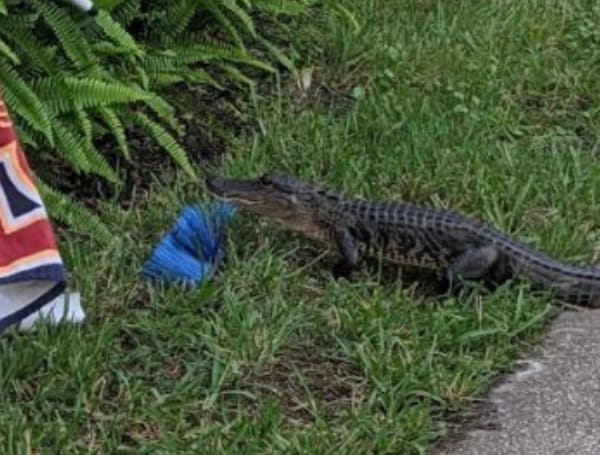Warm spring weather means Florida’s state reptile – the American alligator – becomes more active and visible. It’s also a popular time of year for people to enjoy the outdoors with their pets. To help keep people and pets safer when spending time near the water, the Florida Fish and Wildlife Conservation Commission (FWC) is introducing a new graphic outlining important safety tips.
“We wanted to produce a tool with easy-to-remember advice that people could easily share with their friends and family on social media,” said Brooke Talley, FWC’s Alligator Management Program coordinator. “We hope everyone joins us in getting the word out about simple precautions pet owners should take when in or near the water!”
When temperatures rise, alligators’ metabolism increases and they begin moving around more as they seek food. Therefore, you’re more likely to see them. The following tips can help reduce the risk of a conflict with an alligator:
- Keep pets on a leash and a safe distance away from the water’s edge because pets can resemble alligators’ natural prey.
- Swim only in designated swimming areas during daylight hours and never allow your pet to swim in fresh or brackish water.
- If you believe an alligator poses a threat to people, pets or property, call FWC’s toll-free Nuisance Alligator Hotline at 866-FWC-GATOR(866-392-4286), and we will dispatch a contracted nuisance alligator trapper to resolve the situation.
Serious injuries caused by alligators are rare in Florida. The FWC places the highest priority on public safety and administers a Statewide Nuisance Alligator Program to proactively address alligator threats in developed areas, while conserving alligators in areas where they naturally occur. SNAP uses contracted nuisance alligator trappers throughout the state to remove alligators believed to be a concern. The FWC also works to keep Floridians and visitors informed, including providing safety information in a video and brochure.
The American alligator, an important part of Florida’s wetland habitats, is a conservation success story. Florida has a healthy and stable alligator population, which is estimated at 1.3 million alligators of every size. They are found in freshwater lakes, ponds, swamps, and slow-moving rivers in all 67 counties in Florida.
Support journalism by clicking here to our gofundme or sign up for our free newsletter by clicking here.



